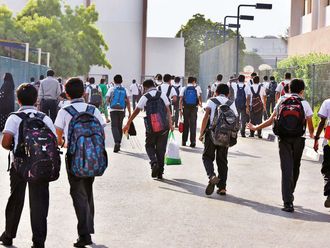For the past three months, relations between Qatar and the anti-terror quartet of the UAE, Saudi Arabia, Bahrain and Egypt have been at a distinctively chilly level over Doha’s aiding and abetting of those who spread sedition, extremism and terror across the region and the Middle East. The quartet’s actions in closing their national air and sea spaces to Qatari aircraft and vessels, combined with financial measures and diplomatic sanctions have highlighted Qatar’s missteps and misadventures by giving succour and solace to voice and forces of extremists. The quartet’s 13 demands are the minimum required of the government in Doha to respect and return to international norms and conventions — and agreements with the Gulf Cooperation Council (GCC) — to counter and combat terrorism.
Over these past months, Qatar has taken actions to antagonise its GCC neighbours and its Arab brothers, and has refused to recognise the legitimacy of the quartet and its 13 demands. Indeed, weeks into this episode, Qatar passed on opportunities at conciliation out of hand, responding to the quartet’s foreign ministers in Cairo with derision. That was an opportunity lost.
Over these past months too, the measures taken by the quartet have highlighted just how isolated Qatar is economically, with its long-term fiscal outlook, its growth, its liquidity and indeed even its food, goods and product sectors being adversely affected. If these measures continue, the leadership in Doha will have inflicted long-term damage on its economy, people, and its bigger infrastructural works and prestige projects will be affected.There have been attempts by third-party intermediaries to intercede and broker an end to this impasse, and the Emir of Kuwait Shaikh Sabah Al Ahmad Al Sabah has acted as a go-between during this time of indirect communication. The US, Germany and France have all played a role. Each of the quartet’s 13 demands are non-negotiable and non-divisible and are the bare minimum required to return once more to normalcy between neighbours. And the quartet are ready to listen. Events over the weekend, where details of a telephone conversation between Qatar and Saudi Arabia were maliciously and purposefully distorted and reported by the Qatar News Agency do not help at a time when the first glimpses of reconciliation are at hand. Certainly, it only appears as if there’s an element in Qatar that wants this self-inflicted isolation to continue — and that is worrying. Doha needs to understand that this episode is of its doing. To end it, Qatar must communicate honestly and in good faith. The quartet is always ready to respond.





